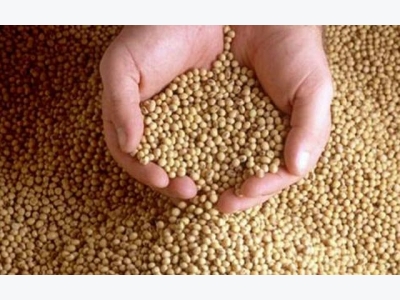Soy sustainability protocol approved by BAP

The US Soy Sustainability Assurance Protocol (SSAP), a third-party verified program developed by multiple stakeholders in the US soy industry, is steadily gaining acceptance as a sustainable soy sourcing standard by aquaculture organizations around the globe, said the US Soybean Export Council (USSEC) Aquaculture Program.
The Global Aquaculture Alliance (GAA) Best Aquaculture Practices (BAP) has recently included the SSAP as a soy sourcing standard as a part of its revised feed mill standards.
The program was developed by the United Soybean Board, American Soybean Association, USSEC and state soybean boards and last year, six million metric tons of US SSAP-verified sustainable soy was exported from the US.
This year, even more is expected, with shipments heading to 28 different destinations worldwide, USSEC said.
The protocol meets the sourcing criteria for organizations including the European Feed Manufacturers' Federation and overlaps with 84 of the 98 elements of the Round Table for Responsible Soy standard (RTRS).
“Soybean farmers use sustainable practices such as crop rotation, no-till farming, cover crops and precision farming to protect the environment and nurture soil productivity for future generations,” said Colby Sutter, director of USSEC’s International Soy in Aquaculture Program. “SSAP certification assures soy customers and end users that US soybeans are produced with the highest standards for quality, food safety and environmental protection.”
SSAP focuses on four sustainability directives: Biodiversity, conservation practices, public labor and health and welfare.
“The SSAP goes much further than the RTRS, for example, in protecting habitats of endangered or threatened wildlife," Sutter said. "Also, because most US soy is produced in Midwest prairie states, there’s no threat to rainforests or sensitive ecosystems.”
Related news
 Australia agrees to re-import processed shrimps from Vietnam
Australia agrees to re-import processed shrimps from Vietnam The Australian Department of Agriculture and Water Resources has received a document from the National Agro-Forestry-Fisheries Quality Assurance Department
 Australia lifts ban on VN uncooked shrimp
Australia lifts ban on VN uncooked shrimp Australia has lifted the ban it imposed in January on uncooked Vietnamese shrimp products. Vietnamese companies may resume importing raw
 Tech start-up claims to reduce bycatch by up to 90% using LEDs
Tech start-up claims to reduce bycatch by up to 90% using LEDs Tech start-up SafetyNet Technologies claims to be able to reduce bycatch in certain fisheries by as much as 90 percent by using simple light emitting devices.